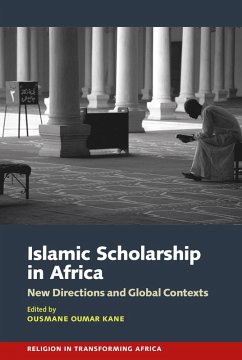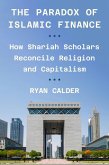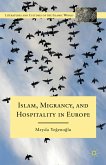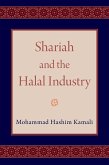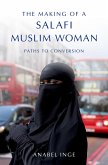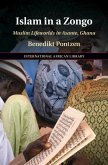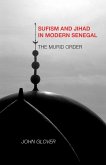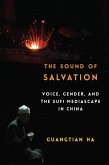Cutting-edge research in the study of Islamic scholarship and its impact on the religious, political, economic and cultural history of Africa; bridges the "europhone"/"non-europhone" knowledge divides to significantly advance decolonial thinking, and extend the frontiers of social science research in Africa.
The study of Islamic erudition in Africa is growing rapidly, transforming not just Islamic studies, but also African Studies. This interdisciplinary volume from leading international scholars fills a lacuna in presenting not onlythe history and spread of Islamic scholarship in Africa, but its current state and future concerns. Challenging the notion that Muslim societies in black Africa were essentially oral prior to the European colonial conquest at theturn of the 20th century, and countering the largely Western division of sub-Saharan Africa and North Africa, the authors take an inclusive approach to advance our knowledge of the contribution of people of African descent to thelife of Mecca.
This book explores in depth the intellectual and spiritual exchanges between populations in the Maghreb, the Sahara and West Africa. A key theme is Islamic learning. The authors examine the madrasa as asite of knowledge and learning, the relationship between "diasporas" and Islamic education systems, female learning circles, and the use of ICT. Diversifying the study of Islamic erudition, the contributors look at the interactions between textuality and orality, female learning circles, the vernacular study of poetry and cosmological texts, and the role of Ajami - the use of Arabic script to transcribe 80 African languages.
> OUSMANE KANE is Prince Alwaleed Bin Talal Professor of Contemporary Islamic Religion and Society, Harvard Divinity School and Professor of African and African American Studies, Harvard University. His books include Beyond Timbuktu: An Intellectualhistory of Muslim West Africa (2016).
Africa: Cerdis
The study of Islamic erudition in Africa is growing rapidly, transforming not just Islamic studies, but also African Studies. This interdisciplinary volume from leading international scholars fills a lacuna in presenting not onlythe history and spread of Islamic scholarship in Africa, but its current state and future concerns. Challenging the notion that Muslim societies in black Africa were essentially oral prior to the European colonial conquest at theturn of the 20th century, and countering the largely Western division of sub-Saharan Africa and North Africa, the authors take an inclusive approach to advance our knowledge of the contribution of people of African descent to thelife of Mecca.
This book explores in depth the intellectual and spiritual exchanges between populations in the Maghreb, the Sahara and West Africa. A key theme is Islamic learning. The authors examine the madrasa as asite of knowledge and learning, the relationship between "diasporas" and Islamic education systems, female learning circles, and the use of ICT. Diversifying the study of Islamic erudition, the contributors look at the interactions between textuality and orality, female learning circles, the vernacular study of poetry and cosmological texts, and the role of Ajami - the use of Arabic script to transcribe 80 African languages.
> OUSMANE KANE is Prince Alwaleed Bin Talal Professor of Contemporary Islamic Religion and Society, Harvard Divinity School and Professor of African and African American Studies, Harvard University. His books include Beyond Timbuktu: An Intellectualhistory of Muslim West Africa (2016).
Africa: Cerdis
Dieser Download kann aus rechtlichen Gründen nur mit Rechnungsadresse in A, D ausgeliefert werden.

